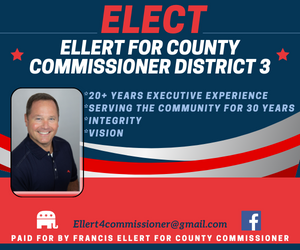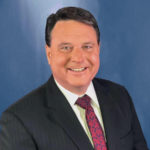Greg Hildebrand, a member of the Board of Directors for the Lifelong Learning Network (LLN) appeared before the Marshall County Commissioners last week to introduce the new Executive Director of the organization, Allie Shook.
Hildebrand is the Project Manager for the Marshall County Economic Development Corporation and said one of their core goals is helping to provide a workforce for the industries in the county. He said, “It’s becoming more and more important as we work, everybody is looking for workforce. It’s the first question that they’re asking.”
Hildebrand said the LLN is working toward the creation of a career innovation center. This would be a learning center for commercial trade education.”
Ms. Shook said the Lifelong Learning Network will be working from early childhood, through youth, adult basic education, and with workforce development. Shook said, “So, looking at how we can bridge the gap and fill those holes that we have right now and try to help our employers, and employees, meet the needs of our county and really grow Marshall County in a number of ways.”
While the career center is one of LLN’s priorities, they want to have programs in place and moving forward before they create a facility. Hildebrand said they don’t want to do a build it and they will come facility. They want to have the need for the facility and then find the right building for the center.
The Lifelong Learning Network will be working with the very young and move through the school-age before hitting those who are already in the workforce seeking additional education to move up. There is also a plan to offer assistance to inmates so they can be ready to join the workforce once released or on work release.
The Lifelong Learning Network board is made up of members from the industrial community, schools, WorkOne, the hospital, United Way, and the Marshall County Economic Development Corporation.
Hildebrand said, “We’d really like to see the building used for more than just during school hours. We’d like to see it used 24/7 if we could.” He continued, “You’d have students in there from 8 to 3 in the afternoon, adult education going on from 3 till whenever and then people reentering the workforce from correctional facilities on weekends or later in the evenings.”














